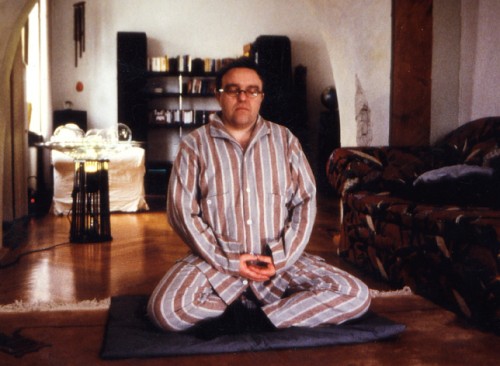
 In a recent New Republic article entitled Happyism: the Creepy New Economics of Pleasure, economist and historian Deirdre McCloskey provides a refreshing historical perspective on the contemporary world’s obsession with happiness. For better or worse, it seems that personal happiness has increasingly become the (explicit) driving force behind human lives. While selfishness is of course nothing new, it’s strange that its vocabulary has largely shed ambition, prestige, virtue, or professional competence as goals independent of ‘happiness’ – though they would still be included under a happiness rubric. Needless to say, the prioritization of happiness over these other components of a pre-modern ‘good life’ gives the concept of happiness an amorphousness bordering on mere feel-goodism. First the historical perspective on happiness being “our only goal” in a modern sense:
In a recent New Republic article entitled Happyism: the Creepy New Economics of Pleasure, economist and historian Deirdre McCloskey provides a refreshing historical perspective on the contemporary world’s obsession with happiness. For better or worse, it seems that personal happiness has increasingly become the (explicit) driving force behind human lives. While selfishness is of course nothing new, it’s strange that its vocabulary has largely shed ambition, prestige, virtue, or professional competence as goals independent of ‘happiness’ – though they would still be included under a happiness rubric. Needless to say, the prioritization of happiness over these other components of a pre-modern ‘good life’ gives the concept of happiness an amorphousness bordering on mere feel-goodism. First the historical perspective on happiness being “our only goal” in a modern sense:
“Our only goal.” To see how strange such a remark is, consider whether it could have been uttered by a leader of opinion in 1538. Martin Luther? Michelangelo? Charles V? No. They sought heavenly, artistic, or political glory—not something so domestic as happiness. Yet, in the late seventeenth century, even Anglican priests commenced preaching that God wanted us to be happy as much as holy. They called it “eudaemonism.” Anglicans and, astonishingly, some New England Congregationalists turned against the old, harsh, Augustinian-Calvinist line. We are not, declared the eudaemonists, mere sinners in the hands of an angry God, worms unworthy of grace. We are God’s beloved creatures, his pets.
We’ll also pause to note how religious sentiment began dovetailing with the new happiness concern. While there’s nothing wrong with the idea that God wants to make us happy (and perhaps nothing distinctly un-Augustinian or Calvinist about it), it’s easy to see where this is all going. McCloskey’s spurious assumption that an emphasis on our beloved-ness cuts against Augustinian anthropology is itself symptomatic of a modern conflation of religion with new psychology’s preoccupation with self-esteem. Nonetheless, McCloskey brings out eudaimonism’s political implications with sharp insight:
The eudaemonistic turn was a Very Good Thing, resulting in fresh projects to better our stay here on Earth, some of them remarkably successful. Democracy was one, since, if you followed the fashion for universal happiness, it became impossible to go on insisting that what really mattered was the pleasure of the Duke or the Lord Bishop….Parallel with the stirrings of democracy and its accompanying welfarism, advocating for hospitals and free public education, was a new bourgeois dignity and liberty.
 Despite the arguably good benefits from a distinctly modern emphasis on earthly pleasure, an honest consideration of the pleasure goal almost inevitably gives way to a feeling of emptiness, a sense that something has gone wrong. Again McCloskey nails the problem, but she goes beyond the idea of pleasure to a more questionable argument for the modern world’s ‘higher’ values:
Despite the arguably good benefits from a distinctly modern emphasis on earthly pleasure, an honest consideration of the pleasure goal almost inevitably gives way to a feeling of emptiness, a sense that something has gone wrong. Again McCloskey nails the problem, but she goes beyond the idea of pleasure to a more questionable argument for the modern world’s ‘higher’ values:
… The knock-down argument against the 1-2-3 studies of happiness comes from the philosopher’s (and the physicist’s) toolbox: a thought experiment. “Happiness” viewed as a self-reported mood is surely not the purpose of a fully human life, because, if you were given, in some brave new world, a drug like Aldous Huxley’s imagined “soma,” you would report a happiness of 3.0 to the researcher every time. Dopamine, an aptly named neurotransmitter in the brain, makes one “happy.” Get more of it, right? Something is deeply awry.
…the liberal experiment since 1700 has yielded gigantically better lives in every sense for a constantly increasing number of us.…what the modern world offers to men and women and children as against cats and other machines for pleasure is not merely such “happiness,” but a uniquely enlarged scope to realize themselves. True, one can turn away from Bildung and read celebrity mags all day. Yet billions are enabled to do more. And they can also have, in proper moderation, more cat-like, materialistic, economist-pleasing “happiness” if they wish. Good for them. These are your sands of better life, though unmeasurable.
The problem with finding a better life in a “uniquely enlarged scope to realize [oneself]” is obvious: the weight of modern potential itself – the Law of self-actualization – probably does as much or more to undermine true happiness than the Epicurean strain she criticizes. It’s no coincidence that those three hundred and eleven million or so with the greatest enablement under the American Dream have been found the most anxiety-ridden nation in the world. Kierkegaard once said that the most a human being can discover through natural reasoning is the fact he’s in a state of error. While illuminating, happiness studies from the world of economics seem often to retrace past missteps, gauging the problem quite accurately but finding it more difficult to propose an economics (read: natural reasoning) -based solution.
[youtube=www.youtube.com/watch?v=SEZrBw6mcSM&w=600]

COMMENTS
Leave a Reply












